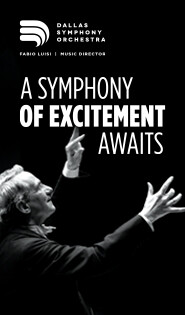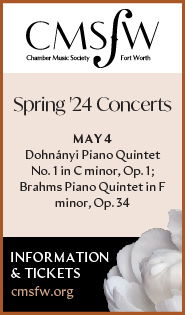Monastyrska finds strength in challenging role of Norma

Liudmyla Monastyrska will star in the title role of Bellini’s “Norma” at Houston Grand Opera, which opens Friday night.
Liudmyla Monastyrska specializes in Italian opera’s soprano fireballs. Lady Macbeth from Giuseppe Verdi’s Macbeth and Abigaille from Verdi’s Nabucco have practically become her calling cards, showcasing the power, finesse and agility of her singing.
This Friday Monastyrska brings Houston Grand Opera the latest addition to her gallery of commanding female characters: the heroine of Vincenzo Bellini’s Norma.
The Ukrainian soprano relishes what she calls “technical roles”–those that test every facet of a singer’s style and virtuosity. Bellini’s Druid priestess, whose illicit love for a Roman leads her to emotional upheaval and suicide, is one of the ultimate examples. But Monastyrska thinks the blockbuster role’s pyrotechnics deliver more than mere vocal display.
“When there are fast passages–fioritura and ornaments–all these passages musically reflect her (emotional) state,” Monastyrska said in an interview last week (Ukrainian-American soprano Yelena Dyachek of the HGO Studio translated). “Aside from that, I’m attracted to the fact that she sacrifices herself as a woman. … Her expression draws me into it. She’s so self-sufficient–self-fulfilled.”
Monastyrska made her HGO debut in 2013 in another of her signature roles, Verdi’s Aida. Her singing encompassed the power and richness of Aida’s emotional outpourings as readily as the pianissimo poetry of the suffering woman’s introspections. HGO is staging Norma for the first time in more than 20 years precisely because Monastyrska wanted to tackle it.
“The title role of Bellini’s Norma is famously one of the most challenging ever written because it demands every expressive gesture the human voice can deliver: high, low, full, quiet, declamatory, caressing, imperious, tender–all in service of a drama that is taut and thrilling,” HGO said artistic director Patrick Summers. “Liudmyla harkens back to golden ages of great divas in full and effortless command of their possibilities, and I’m looking forward to Bellini’s masterpiece coming to life out of the rarity of her gifts.”
For a soprano, Norma–whose entrance aria, “Casta diva,” represents lyricism at its most hypnotic–may be the pinnacle of 19th-century bel canto. When Monastyrska was a student in Kiev, she said, she admired classic recordings of the role by Maria Callas and Montserrat Caballé, “and I was dreaming of singing the role in the future.”
The chance came this past winter in Ukraine. She portrayed Norma first in concert, then onstage. But National Opera of Ukraine, Monastyrska’s artistic home, cut parts of the score, she said. (HGO will restore the cut passages.)
“I’ve been learning it since last August–and I’m still working on it,” she said. Four coaches in Ukraine helped her during the fall and winter, and she now huddles daily with a member of HGO’s music staff to absorb the usually-cut sections and polish everything.
“It’s a very expansive role, and I haven’t spent nearly this much time on any other role. It’s a mystery why it’s taking so long!” she added, accenting her words with a full-throated laugh.
Then again, maybe the challenge isn’t so hard to fathom: Norma is Monastyrska’s first bel canto role.
“It’s a new style for me,” she added, switching to English for emphasis. But she has performed early Verdi operas, whose music grew from bel canto roots. Taking on Abigaille from Nabucco helped her get a grip on the style’s daunting demands.
“At one point, Abigaille was difficult,” Monastyrska recalled. “And I worked a lot on it. That was four and a half years ago. Since then, I’ve been singing it a lot. And I think that, thanks to that role specifically, my technique has gotten better.”
The Metropolitan Opera brought her portrayal of Verdi’s power-hungry heroine to Lincoln Center in 2016. Writing in New York Classical Review, Eric C. Simpson declared Monastyrska “the vocal star” in a cast that also included Placido Domingo in the title role and mezzo-soprano Jamie Barton–who will play Norma’s rival Adalgisa in Houston–as Nabucco’s daughter Fenena.
Monastyrska’s voice, “on its face, does not sound like the world’s most subtle or supple instrument; she has such vocal weight that it’s astonishing to hear her navigate the role’s fioritura as accurately as she does,” Simpson wrote. “Though her primary mode is an intense blaze…she was able to rein in her voice in more intimate moments, such as her glowing pleas for forgiveness in the opera’s final bars.”
When Monastyrska was a 15-year-old, her first teacher began drumming into her the value of diligent work. During her student days at the Kiev Conservatory, her voice’s heft was already emerging, and she sang arias from the likes of Aida and Tosca. Today, she gravitates toward Norma, Adalgisa, and other intense parts, and she has dropped such roles as Santuzza in Pietro Mascagni’s Cavalleria Rusticana, Amelia in Verdi’s A Masked Ball and Puccini’s Turandot.
“If you have the opportunity to sing early Verdi or Bellini, that’s better than Turandot,” she said.
But Monastyrska does believe her vocal diet should embrace contrast. So her repertoire also includes Puccini’s Tosca and Manon Lescaut. Verdi’s Leonores in both Il Trovatore and La Forza del Destino will soon join the mix. Her favorite roles, she said, all have facets that she can relate to as a woman.
“Things that happen in your personal life influence how you understand a role–how you interpret it,” she says. “That’s why I love strong roles, coming from experiences in my personal life. … These roles help me stay confident in myself.”
Norma opens 7:30 p.m. Friday and runs through May 11 in the Resilience Theatre in Houston’s George R. Brown Convention Center. houstongrandopera.org


